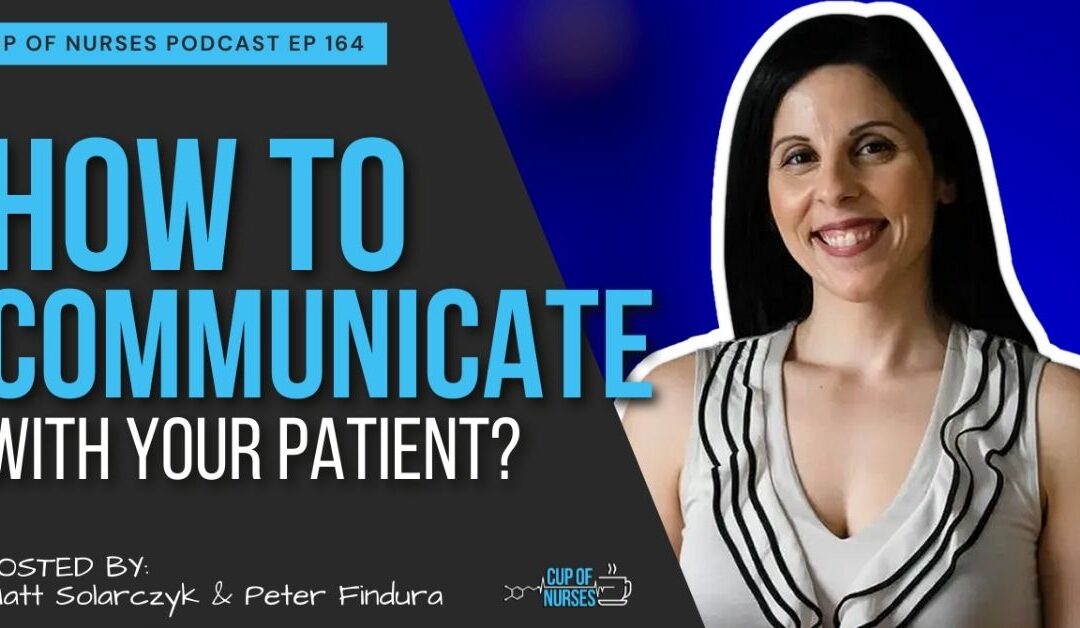
EP. 168 Empowering Nurses with Alice Benjamin
Empowering Nurses with Alice Benjamin
Nurses are the backbone of healthcare, and we take pride in that. However, there are times when nurses don’t feel like they are as important in our community.
A bad work environment can also add up to the stress that many nurses feel. In some cases, many nurses do not feel like their efforts are given enough recognition, so they don’t perform well, or worse, they don’t provide quality patient care any longer.
While many nurses take their profession seriously, some are not sure anymore. What can we do to help our fellow nurses? Is there a way to inspire and encourage them to do better?
What needs to improve in a nurse’s work environment to help them feel empowered?
In this episode, we would like to introduce you to Alice Benjamin, better known as Nurse Alice, America’s favorite nurse. She is a cardiac clinical nurse specialist and family nurse practitioner with over 23 years of healthcare experience.
Alice is Nurse.org’s Chief Nursing Officer and Correspondent and hosts the popular ‘Ask Nurse Alice’ podcast.
QUESTIONS FOR GUESTS:
The questions below are some we’d like to tackle. We go off-topic all the time, so we don’t expect to hit them all. If you have any ideas, please let us know. Looking forward to our conversation!
- Being in over 20 years in healthcare, what are some changes you would like to see in healthcare?
- How do you think the pandemic has affected nurses?
- How should new nurses empower themselves going into this profession in 2022?
- What do you think about the RaDonda Vaught case?
- She was sentenced on Friday to three years of probation in a Nashville criminal court. After the probationary period, she could ultimately have her conviction dismissed.
- Found guilty in March of two charges, criminally negligent homicide and abuse of an impaired adult, after a medication error contributed to the death of 75-year-old Charlene Murphey in December 2017.
- What are some of the biggest challenges you have taken on recently?
- What is something nursing has thought you that you can apply in life?
ENDING QUESTIONS
Before we end the show we have one last question we like to ask all our guests. If you had the opportunity to have a Cup of coffee with anybody one last time, who would it be & why?
Socials:
- If you want to know more about Nurse Alice you can visit her website here: https://asknursealice.com/.
- You can also connect to her via Twitter at @AskNurseAlice or through her Instagram account @asknursealice.
- Listen to her at Ask Nurse Alice Podcast by Nurse.org or check out Nurse.org for more. Her podcast is also on Apple at Ask Nurse Alice.
Learn how to become an empowered nurse by watching our full episode. Click here for more 👇
TIME STAMPS:
00:00 Intro
01:35 About Alice
02:30 What are some changes you would like to see in healthcare?
06:26 How can we improve the healthcare system?
09:46 Reasons for some patients’ noncompliance
15:24 One-size-fits-all patient treatment does not always work.
17:57 How should new nurses empower themselves?
20:26 How to be a better nurse
24:13 What are the challenges of being a nurse
29:52 Thoughts about the RaDonda Vaught case?
43:31 The last one cup of coffee with?





Recent Comments